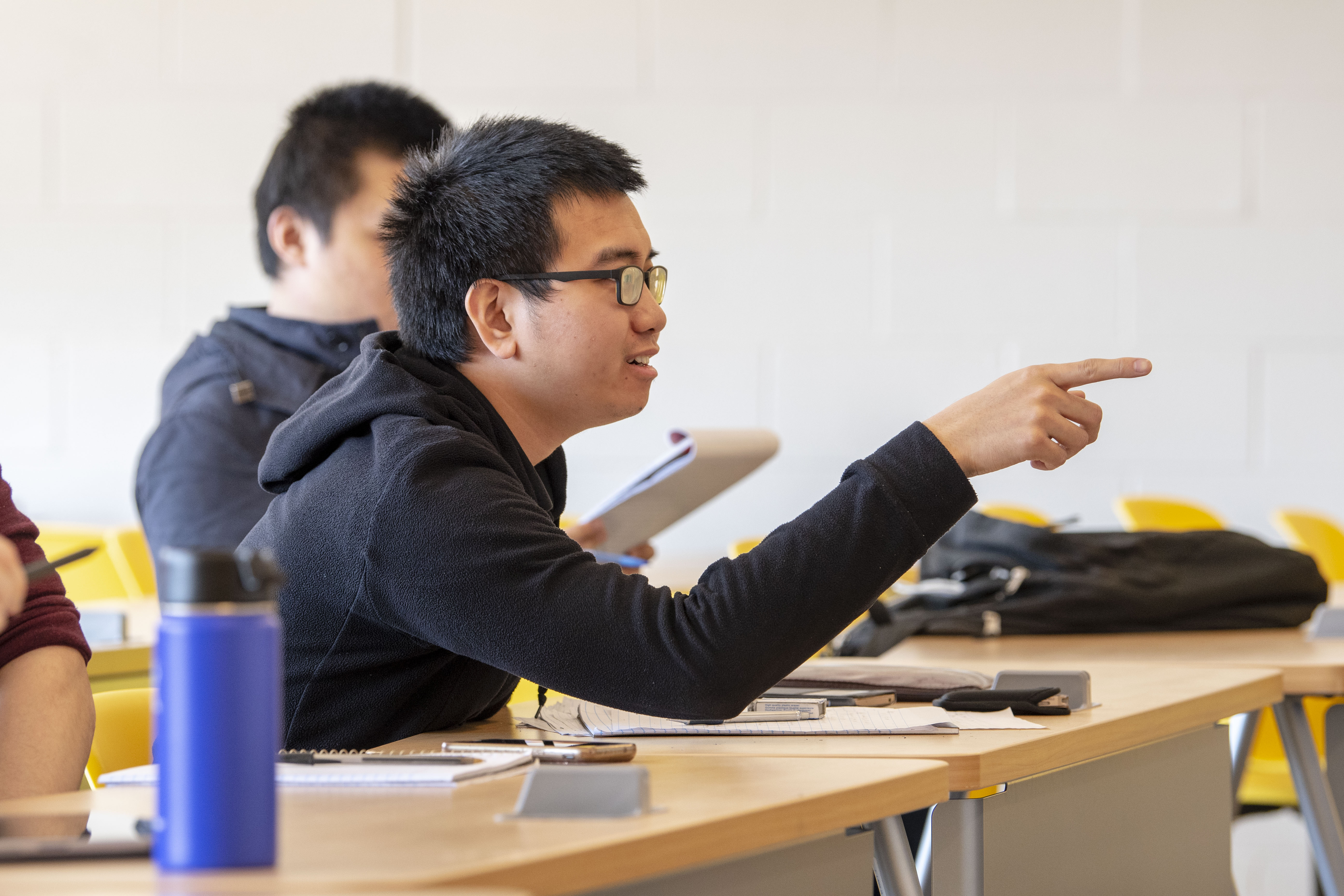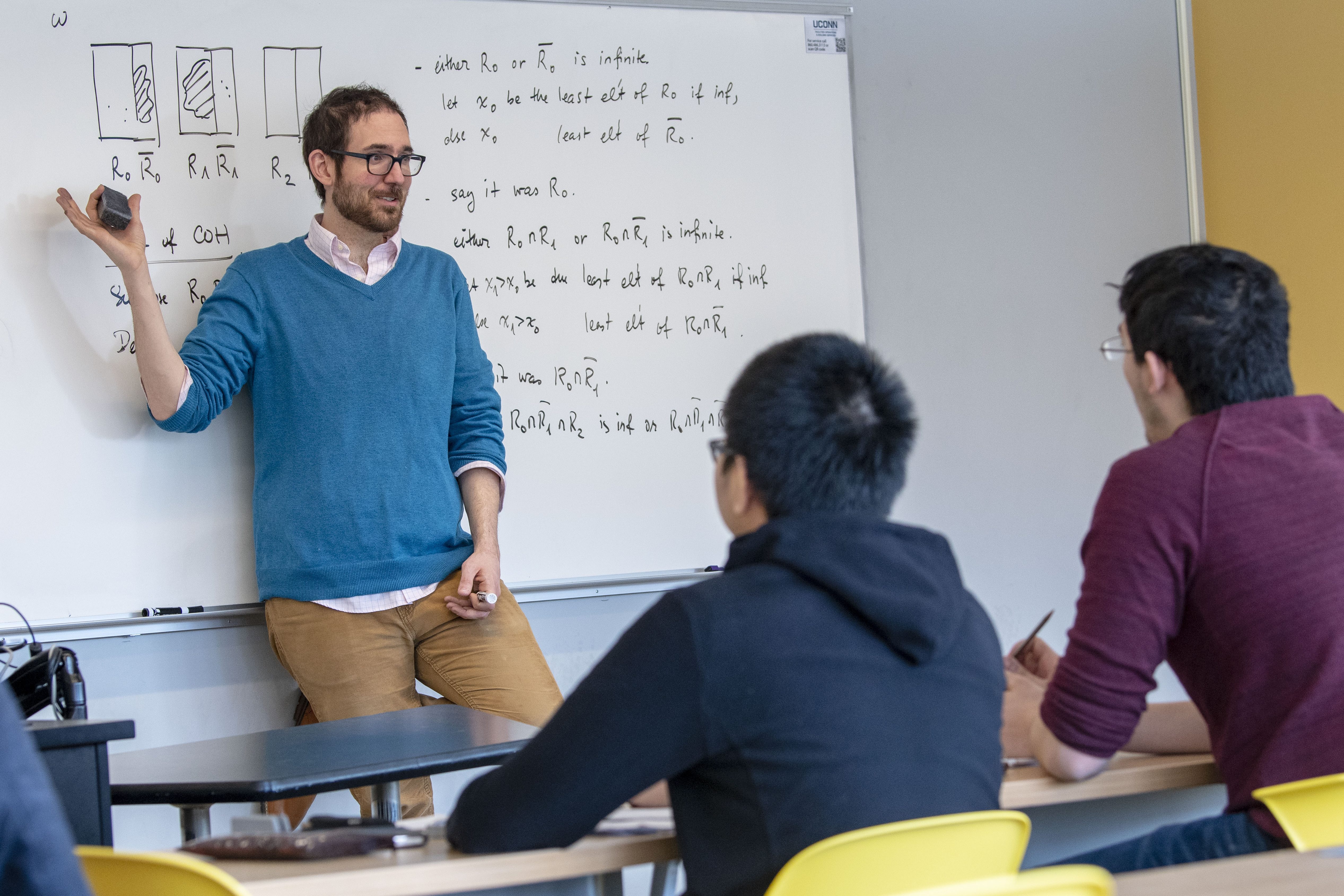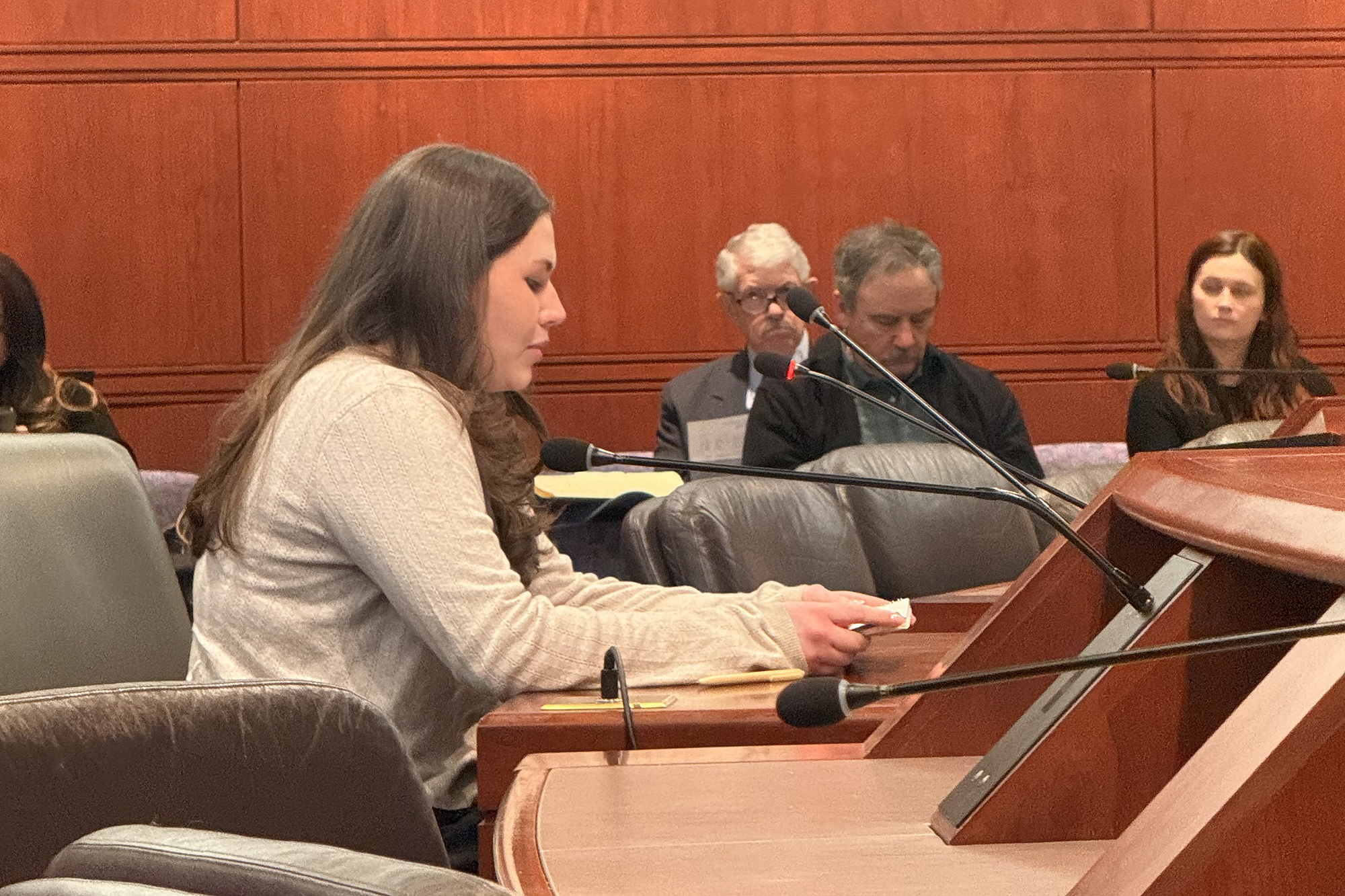Information these days moves at a dazzlingly accelerated pace, and if you’re reading this, you have a wealth of human knowledge and achievements at your fingertips. You also have access to misinformation and potentially malicious content. UConn assistant professor of mathematics Damir Dzhafarov says that in this context, being able to logically and systematically analyze information is a vital skill, and one that extends into every discipline.
UConn is one of a handful of universities which, in recognition of the universality of logic, is ensuring that students from multiple disciplines learn the skills that logic instills. This spring semester sees the launch of a new professional graduate certificate in logic in which students are venturing outside their area of study and familiarity to experience logic from diverse viewpoints.
One of the reasons this program is possible is UConn’s unique logic group, says Dzhafarov, a gathering of like-minded scholars that started as a small reading group and has grown into one spanning academic areas ranging from math, linguistics, and philosophy, to computer science and neuroscience.
“Many universities have logic as an area of study, but rarely do those programs have so much interaction with other programs,” says Dzhafarov. “Traditional programs may offer logic from one or maybe two of these viewpoints of logic, but we have an extraordinary group of over 40 members from math, psychology, law, computer science, among others. We are recognized not only for the programs, but for this group, where they can see logic from these different facets.”

With the ever-growing logic group, the new certificate program, and in his teaching in general, Dzhafarov says he hopes his students can walk away from a course with the skill set necessary to dissect a problem and study it in a systematic and unambiguous way. These skills are universal and transferable to any situation. Whether you are working through complicated computer science or neuroscience concepts, or simply taking in the daily news feed, parsing through the sometimes very complex details and making sense of them are life skills rooted in logic and reasoning.
To hear about the group, and the value of the unique logic group at UConn from the student point of view, listen to Mengyu Hu, a graduate student in philosophy, and Noah Hughes, a graduate student in mathematics. Both are longtime, active members of the logic group. They explain how it has helped shape their studies, and how they think about things in everyday life:



